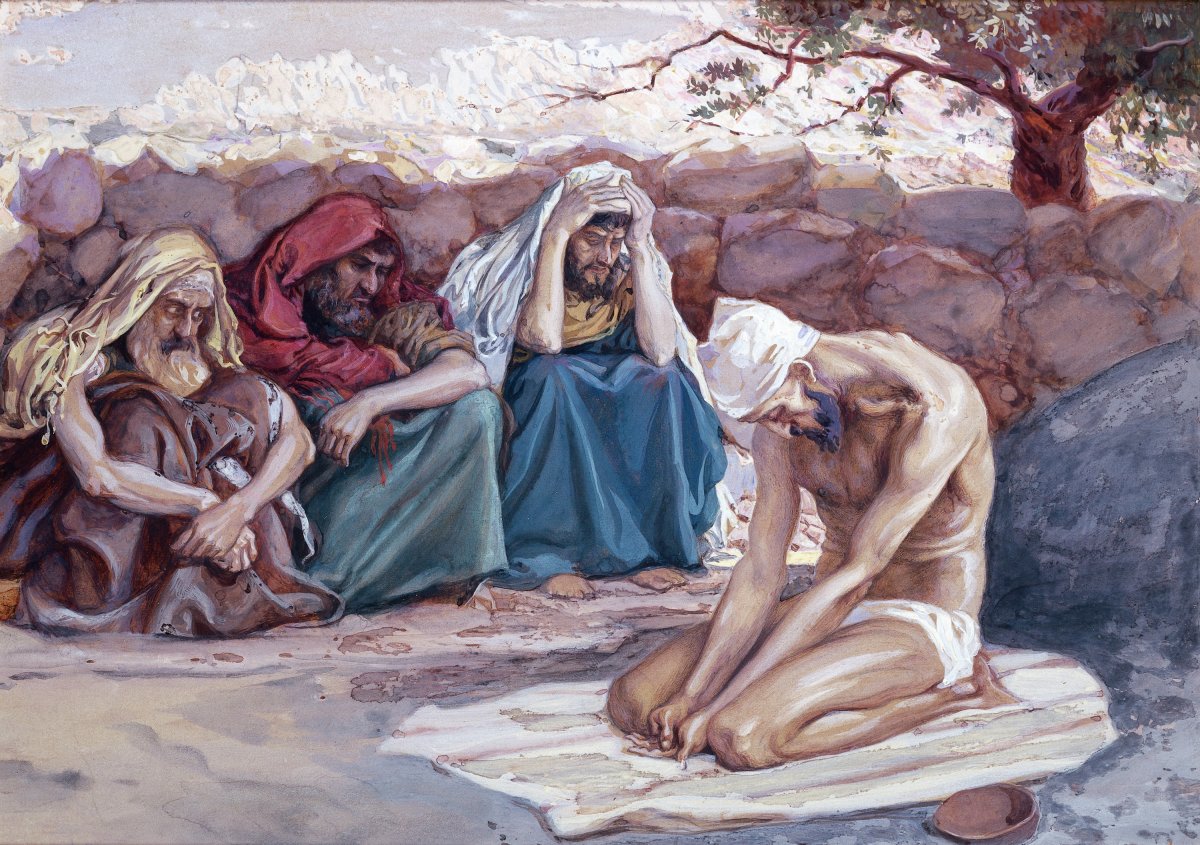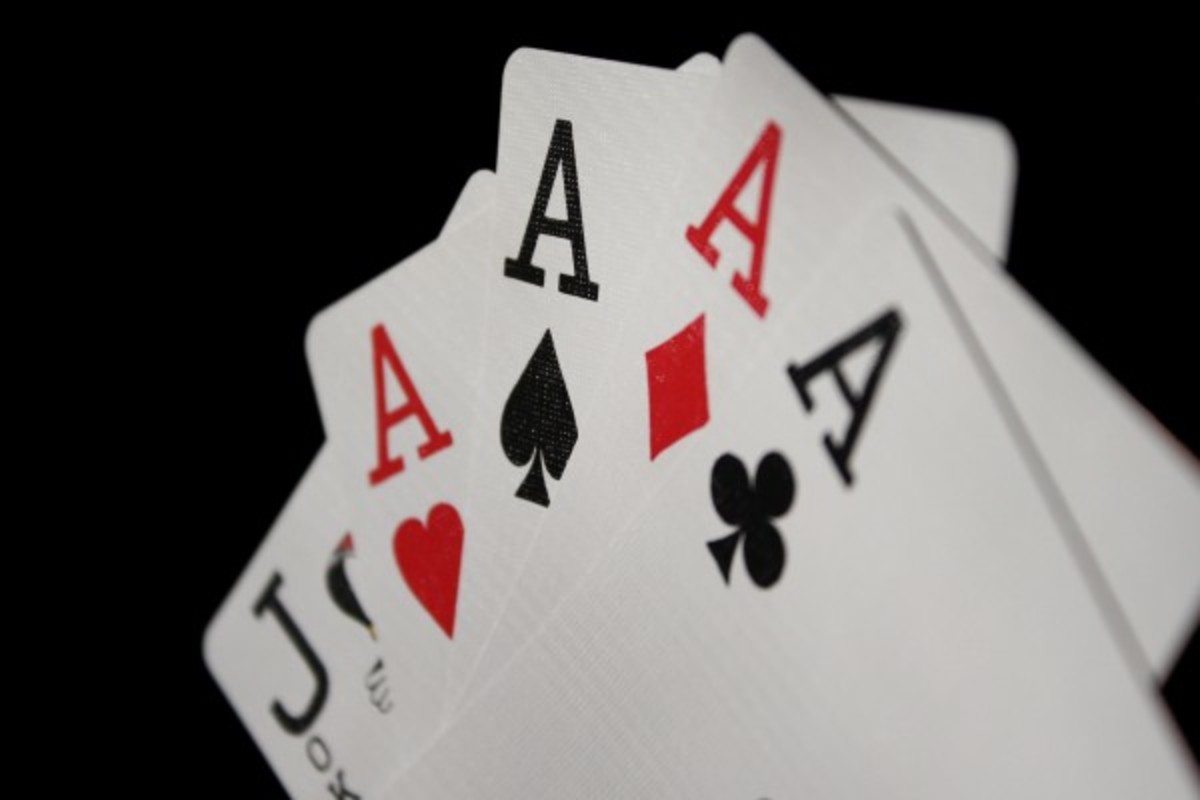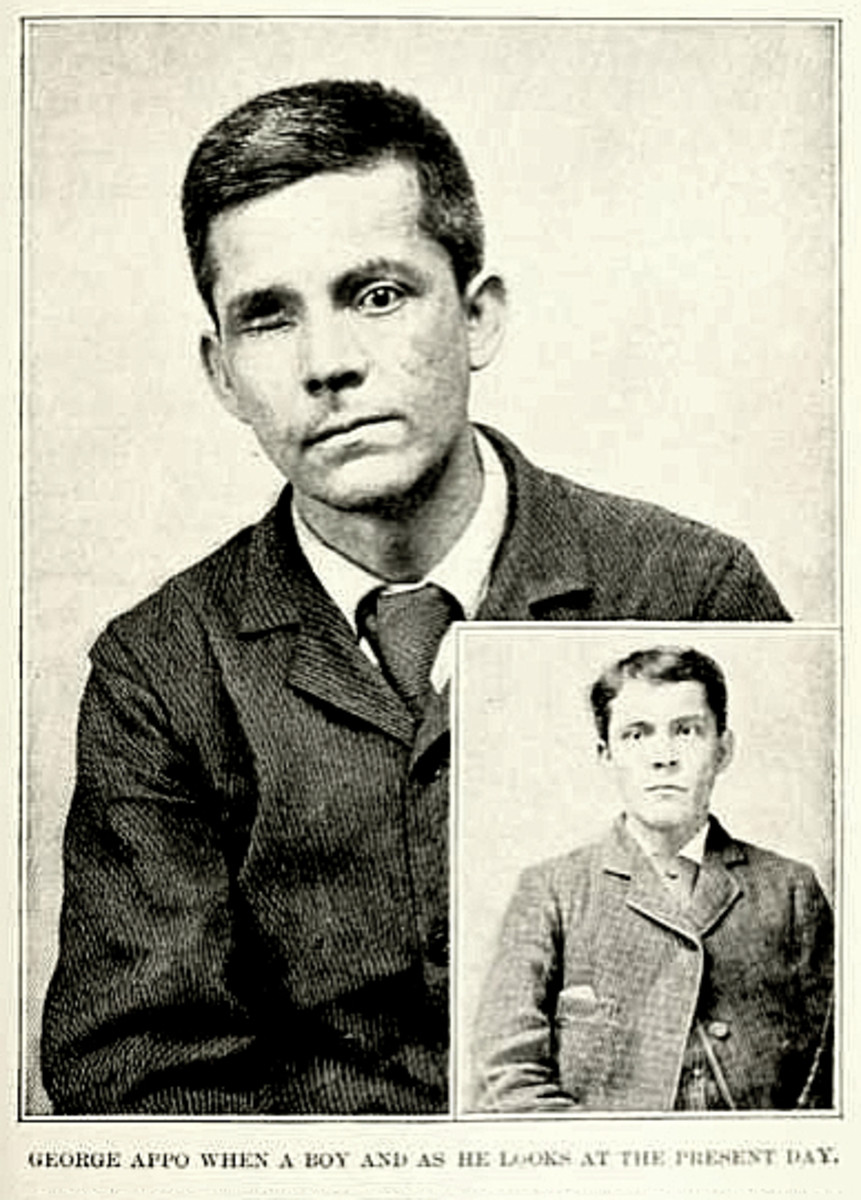Sentence Sermons (Christian Inspiration) #108 -- Gambling
Quotations on Gambling
Gambling is the vice in which the demon of covetousness stands exposed in all its writhing nakedness.
---Henry W. Satterlee, Evening Star, Washington, D.C., March 4, 1906.
The gambling spirit is a great national devilfish; a monstrous octopus, which reaches out its long tentacles and blights and defiles anything it can touch. Gambling blunts and destroys the moral perceptions. It cultivates an inordinate greed and gain. It distorts standards of value and right. To get something for nothing or great returns for little investments infatuates men into perilous tasks and the sacrifice of every social trust. Gambling leads to lying, dishonesty and stealing. Gambling and defalcations which can be traced to the gambling table are a multitude. It leads to drink, profligacy and murder.
---C.E. Locke, Houston Daily Post, Houston, Texas, Dec. 15, 1895.
Gambling, I have said, is stealing, and I reiterate the definition. In its final analysis it is stealing—nothing else. It consists in getting money from another for which you have rendered no honest equivalent. In all labor there is profit and there should be. But the gambler produces nothing. He is merely a leach upon society; a cancer eating out its vitals; an appropriator of other men’s productions.
---W.P. George, Lockport Daily Journal, Lockport, N.Y., May 12, 1897.
Gambling is one of the worst forms of sin, and has the tendency to destroy the natural sensibilities of him who indulges. Its influence is not in the direction of frequenting the best places. Its devotee, as a rule, has no regard for the God who made him, no respect for religion.
---G.W. Woodbridge, Houston Daily Post, Houston, Texas, Feb. 9, 1896.
Gambling in every form merits our unqualified condemnation in all its aspects. It is simple robbery.
---Bernard H. Nadal, The Evening Telegraph, Philadelphia, Pa., March 21, 1867.
The very essence of gambling is the antithesis of Christianity. The Bible says man is to earn his living rather than live off the earnings of others. Anything that takes from the pockets of working people and uses it to enrich a few is sin. Any enterprise that cannot exist without preying on the weaker side of human nature has no right to exist. It does seem to be a part of human nature to gamble, but nature is to be conquered, not coddled.
‑‑‑E.S. James, Baptist Standard, Dallas, Texas, April 18, 1962.
The god of this world binds the eyes of many who are enamored of bigness so that the ship of faith runs upon the high rocks or hidden reefs. Gambling goes under many names and guises, but it is all essentially wrong. If we love, we waste; if we gain, we steal. .Gambling in the social world is a high rock of destruction to many.
—George Ewing Davies, Deseret Evening News, Salt Lake City, Utah, July 20, 1914.
Betting and gambling are sins–they are grave violations of a Christian moral code. They are debauchers of character, devices of Satan to bring unbelief, sorrow, distress and suffering to God’s children. Losses and disappointments due to gambling–betting is a species of gambling–not infrequently lead to crime and suicide. These vices are a black blot on the character of any person who indulges in them. They are usually secretly engaged in, for none given to these vices is fully trustworthy, and therefore cannot be given a responsible position where the handling of money is involved. ...
No practice of activity that aims to get something for nothing is truly honest. Hence no type of betting can ever be honest. ... Gambling and a love of God cannot develop together. ... A strong active faith in our living Redeemer, Jesus Christ, is the greatest need of the age, both for the individual and the nation. If such a faith were universal, vice of every type would disappear and love would rule the world. God would hasten the coming of such a day, for come it will!
—Joseph F. Merrill, Millennial Star, London, England, March 26, 1936.
The real evil in lotteries is not in their mere appeal to chance, but in their use of it to seek fortunes without earning them, and at the expense of others. Lotteries are in this way a great evil, leading people to neglect honest industry, and to live on each other instead of by their own labor. But this evil should be censured when seen outside of lotteries. It is just as bad to live on each other by cunning as by chance. It is worse to win from each other by business trickery than by tickets. All gain by the loss of others and by no desert of our own, is the same evil that underlies gambling; and is the same whether it be censured under the name of lottery or honored elsewhere under the name of law.
And another evil of lotteries is that they harm especially the poor. Most wise men know enough to keep out of them, but the ignorant are deluded and made poorer. In this respect, they are even worse than gambling; for it is better that rich gamblers should win each other’s wealth than that the poor should lose their little. But this evil, too, is not just confined to lotteries, and is just as bad in whatever way it comes. It is no worse to win gain from the laboring class by the lottery wheel than by factory or car wheels. Any business system or custom which oppresses the poor is an evil, and just as bad an evil, whether it be done by a bribed legislature or by men anywhere. We will denounce lotteries, but not forget their evils elsewhere, and work for the full justice and charity which all classes owe each other.
---H.H. Simmons, St. Paul Daily Globe, St. Paul, Minn., Feb. 17, 1890.
The gambler, unlike the worker whose arch-foe he is, seeks something for nothing. His winnings are not gifts, for he receives them against the expectation of one who had hoped that chance would have determined otherwise. It is neither earned nor given. Cleland McAfee said, “It takes another man’s property, not as a gift, for it is accounted won, and not with any recompense which leaves him the better.” G. Campbell Morgan said, “A man who gambles, whether by play or betting, puts into his pocket money for which he has done no honest work; and by the very act he robs the man from whom he receives it, and violates the law of love.”
The winner is in greater moral peril than the loser; for the latter sometimes learns his lesson—though none too often; the latter seldom does. Chauncey M. Depew said, “It is the one vice which seems to destroy at once immediately the moral sense, and to obliterate that absolutely essential quality in employer and employee, in the custodian and his cash, in the trustee and his estate, in the son and his mother’s or sister’s property, fidelity to the trust, the violation of which destroys the violator and ruins the people who confide in him.”
Friends of honest labor, parents, educators, pastors, are up against a moral problem that may not be trifled with in a good-natured way. The foundations of commercial integrity are involved. Like intemperance, it is “habit-forming.” It becomes stronger the greater the success attained. Like mystic Babylon, the lottery has caused any to wax rich through the abundance of her dainties. By her sorceries have all nations been deceived.
---George Zabriskie Collier, Christian Intelligencer, New York, N.Y., Oct. 6, 1920.
Work in its proper place and degree is, nonetheless, a blessing—a blessing because it is a necessity, and no sensible man can be at peace with himself or with the world who is shirking his fair share of that which is necessary for the maintenance of human life.
The gambling spirit stands at the very opposite from the principle of honest and reasonable work. The essence of gambling is the desire to get something for nothing, and the evil of gambling should be recognized as consisting as much in its spirit as in the actual deal. The gambling spirit has always been prevalent, but it doubtful whether it has ever had such widespread development as in modern times when the greatly increased and extended mechanism of society has made it possible upon so much larger a scale.
One of the difficulties with which men are confronted in actual life, and with which the moralist also has to contend, is the fact that the element of chance enters into all business and industrial activities as never before. The conditions of life today are far removed from that desirable situation where every man who is willing to work would be assured a reasonable reward for his labor, and every useful activity in industry and commerce would have assurance of fair profit. Under the circumstances of life today the ordinary processes of commerce and industry have a large element of chance inevitably associated with them.
But in spite of this difficulty there is rather a clear distinction that a man can make in his own mind and conscience between the attitude of a sincere desire to bear one’s share of the world’s burdens and the attitude of the man who seeks only to profit from the labor of others and to make his gain from the chances of life.
The man with a gambling spirit is essentially a shirker and a non-builder. The man with the right spirit, no matter how much his fortunes and his success in his enterprise depend on chance, is interested in doing something. He is a real builder who is making his contribution to the world. If the element of chance is in his life it is incidental and not basal. In the gambler the element of chance becomes the basis of his very existence. It is that fact that makes gambling so disastrous in its effect upon the individual and so blighting in its results for society.
Some day the world is going to awaken and assess private conduct according to its social values and result. The life and career of the man who is a parasite is going to be challenged, and not only will it become a matter of social scorn and degradation to be a parasite but in the reconstruction of society and its laws there will be no room for the parasite.
Perhaps we are a long distance from that day, but in the meantime every man can settle the matter in his own private and personal life by consciously and dutifully striving to render his fair share of work to the world. If the chances of life bring to him possessions and privileges the less fortunate men do not enjoy he can square the matter by using these things for the benefit of the world, instead of taking for himself the things that he would never have were it not for society.
---William E. Gilroy, Southeast Missourian, Cape Girardeau, Mo., Oct. 12, 1929.
Gambling feeds the mouth of sin. Whenever you place a bet you are putting money in the pockets of the racketeers–you are paying the salaries of the parasites–you are simply feeding the mouth of sin.
—Woodrow W. Clarke, Religious Herald, Richmond, Va., Feb. 25, 1944.
Gambling, a vice that has flourished, is of the very essence of theft. It is hard to find a more common form of systematic stealing than the numbers rackets and gambling games. ... These gambling places are simply dens of thieves.
—Adiel Jarrett Moncrief, Jr., Tampa Morning Tribune, Tampa, Fla., Jan. 15, 1940.
The gambler is first a fool and last a scoundrel. Does the Bible forbid gambling? Well, if there is anything that it does forbid, it is the vice whose root is greed, whose trunk is cruelty and whose fruit is fraud.
—Henry Alford Porter, Dallas Morning News, Dallas, Texas, Dec. 20, 1915.
Gambling is gambling, whether in stocks or breadstuffs, or dice, or race horse betting. Exhilaration at the start, but a raving brain, and a shattered nervous system, and a sacrificed property, and a destroyed soul at the last.
—Thomas DeWitt Talmage, The Courier-Journal, Louisville, Ky., Jan. 24, 1898.
No amount of legislation or respectable endorsement can make gambling anything other than a debauching and villainous sin. The law of God and common decency are against the whole thing.
—A.R. Holderby, The Atlanta Constitution, Atlanta, Ga., March 24, 1902.
Do not speculate or gamble. You go into a city where everybody is excited and strives to make money suddenly, and without working for it. They blow soap bubbles. Steady, patient industry is both the surest and safest way. Greediness and haste are two devils that destroy thousands every year.
—Henry Ward Beecher, The Atlanta Constitution, Atlanta, Ga., Jan. 6, 1901.
Gambling will kill your conscience, and kill your manhood, and kill your womanhood--take every bit of refinement and fatherhood out of you. It vulgarizes, drags you down and through the gutters and sewers of hell.
—Gipsy Smith, Florida Times-Union, Jacksonville, Fla., Jan. 23, 1924.
Gambling cultivates luck reliance, and luck reliance is death to individuality.
Gambling leads to daring risks. ... Gambling begets a disregard for law. ...
Gambling leads to the lowest forms of depravity. Every evil under the sun is associated with it. A man or a woman who will gamble will do anything else that is immoral, if it serves their purpose as well.
—Len G. Broughton, The Atlanta Constitution, Atlanta, Ga., July 3, 1905.
Gambling is a form of stealing, for it violates both the law of labor and the law of love. It is endeavoring to get something for nothing. If you say that you risk your property against that of another, it is still stealing. For you do not labor. You make no contribution to the welfare of society. Certainly you do not do so out of love, except the "love of money," which the Bible says is the "root of all evil."
—Herschel H. Hobbs, The Beam, Fort Worth, Texas, January 1962.
The gambler is sowing to the basest and most corrupt passions of his nature, and he will of necessity reap corruption. His evil deeds will come back to him burdened with the penalty of degradation, wasted manhood, ruined character and blighted hope. He cannot deceive his Maker. His sin is sure to find him out.
—George C. Rankin, Houston Daily Post, Houston, Texas, Oct. 29, 1894.
Regardless of flimsy arguments to the contrary, gambling is non-productive and demoralizing; it is wrong in principle, and not a matter to be justified, compromised or regulated according to the financial standing of the participants. Fortunes have been lost, lives ruined, and homes wrecked, directly or indirectly by this evil. ...
Doubtless, the material wealth we possess, as well as all of our other resources and abilities, will have to be accounted for when we stand before the Master of all, after the manner of the three servants in the parable of the talents. It certainly will not be a happy experience for those who must relate how they bet on the wrong horse, or were unfortunate in a card game, and consequently lost what little of worldly goods they possessed, thus depriving their families of necessities. Neither will it be an inviting occurrence for those who squander fortunes that might have been put to some productive use.
Men may be barred from heaven because of sins for which no manmade laws could bring them into account.
—Richard L. Evans, Millennial Star, Liverpool, England, July 14, 1927.
A gambler is a vagabond, for he has no regular employment.
A gambler is a spendthrift–come easy, go easy.
A gambler is an outlaw, for he violates God's law as well as the law of the land.
A gambler is a thief–he gets his living by dishonest means.
—George R. Stuart, Dallas Morning News, Dallas, Texas, Nov. 13, 1897.
The gambler is no producer, the world is no better off for his day's work, and he renders no service to society, as robbing men and swapping dollars have no place for good in the social system.
The gambler learns to glory over another man's failure; either he must strive and work toward that end or fall himself; the gambler or his victim either must fall, and it is the gambler's object to see that it is not himself who goes down. No community can afford to have in its midst men who glory over the fall of others; hence, the gambler is in the way of progress and a menace to morals.
The Golden Rule is: "Do unto others as ye would be done by." The teaching is a noble one, but the gambler can't follow it, as he is transposing things and trying to do others before being done himself.
—C.V. Edwards, The Daily Picayune, New Orleans, La., May 30, 1904.
Many in the world declare their belief in luck. With it comes a faith in chance, a following of fetishes and the adoption of many fallacious and hurtful practices. It is a belief that is irrational, heathenish and in turn is infidel. Such a belief leads to shiftlessness, to gambling, idleness and to poverty in material things and to the destruction of the manliness of men and of the healthful powers of the soul.
Faith in God brings about a faith in fellowmen and a happy, hopeful living. It leads to a study of God's word and an ordering of the walk of men according to its teachings. It gives a trust in the perfectness of God's plans and the safety to men in the following of them. It increases the clearness of men's intuition. In times of prosperity there comes of this trust a preparation for whatever God may send, a right enjoyment of what God gives and a righteous use of all He had entrusted. Such a faith gives stability and cheer in times of adversity and comfort of sorrow. Thrift in act, charity and force in thought and certainty in this life and that which shall be are the outcome.
—James Lewis Bell, Dallas Morning News, Dallas, Texas, Aug. 26, 1907.
Gambling is but a form of greed, midway between passive covetousness and active stealing. ... Gambling is related to theft as dueling is to murder. In a duel each combatant risks his own life in order to take the life of the other; and in gambling each gambler takes a hazard on his own property in order to secure the property of the other without giving value received.
Crimes of greed and hate are the natural outcome of excessive opulence. Where wealth abounds, men generally decay. ... Amazing accumulations harden the heart and inflame the passions. They impart a consciousness which often leads their owners to feel that they are above the law and that they may defy the law with impunity. Indeed, many such men of wealth are brazenly and truculently lawless, committing crimes and snapping their fingers in the fact of authorities who are commissioned to enforce law.
—Warren Akin Candler, Atlanta Journal, Atlanta, Ga., Dec. 16, 1928.
Personally, I feel that gambling under any condition violates the eighth and tenth commandments. The bandit takes another man's money by force, the burglar takes it by the stealth, the gambler takes it by trick, and the lottery takes it by chance. ... Gambling makes slaves of people. ... Gambling is not edifying. ... Gambling causes many to fall and I cannot be a party to it. ... To have doubts and then to gamble is to sin. The Christian should, if there is a doubt, take the safe side.
—W.W. Hamilton, Baptist Message, Alexandria, La., Aug. 13, 1953.
Firmness in leading a moral life [gives one] a start to greatness. Many a young man has come to town and neglected his prayers and his promises, gotten into bad company, gone to the gambling house and saloon and traveled the downward road until he was ruined. A moral young man is the man to succeed. If you are not sound to that point you had better call a halt at once and start right. There is no hope for greatness without it.
—J.E. McClurkin, Childress Index, Childress, Texas, May 24, 1916.
Honorable success involves a worthy ambition, faithful toil and the conservation of life's activities in a good personal character and in beneficent social institutions. Life should be viewed as a mission upon which we have been sent by the Creator. That mission is to be performed in sweat of brow and spirit of conqueror. The real happiness of life lies in its beneficent and benevolent results. No one can have pride in selfish effort or shoddy living.
The gambling spirit lies athwart the achievement of honorable success. It substitutes chance for certainty, seeks maximum of gain for minimum of toil, bases its operation upon deception, constructs devices that ensnare the unwary, and stakes all on the lucky throw of dice or revolution of a wheel of fortune. Hard work, steady habits, push and pluck are replaced by loitering in corner stores, waiting for something to turn up, reckless playing of gambling devices, and the road to honorable success is left for the ways of vagrancy and dishonor.
These games of chance and devices of deception foster the gambling spirit and to the extent this is cultivated, result in the deterioration of open and honest endeavor.
—Howland Hanson, The Register and Leader, Des Moines, Iowa, May 23, 1910.
If men realized how base a thing is gambling, and how diametrically opposed to every human interest is its basic principle none but a degenerate would gamble. They realize that it is unproductive, debases nature, [and] is economically unsound. ...
The evil of the root of gambling is its destructiveness of law. All human progress is proportionate to the advance in the establishment of law. Civilization is measured directly by the perfection of the laws by which the people live. Where law has not been established there is savagery; and when law breaks down savagery ensues.
The reign of chance is the absence of law somewhat as darkness is the absence of light, or cold the absence of heat. Chance reigns when law is dead. Chance is anarchy as opposed to law; chaos as opposed to order; pandemonium as opposed to harmony; insanity as opposed to rationality; a hazardous guess as opposed to fixed knowledge; shiftlessness as opposed to character; sin as opposed to righteousness.
The first form of chance in the world is nature under the curse of sin without the guiding hand of intelligence. ... All achievement left to chance ends in defeat.
Yet some men, forsaking law, invent for themselves schemes in which chance is their king and goal. They hinge their destiny on the throw of a card, the speed of a horse, or the turn of an uncertain contest. Thus they reject the law and set up chance, thereby being the enemy to civilization, degenerating self, insulting society, and defeating the purposes of God.
—Isaac C. Jenkins, St. Petersburg Times, St. Petersburg, Fla., Oct. 1, 1928.
Gambling is not a legitimate business; it is a parasite and lives by the blood it sucks from the body politic. Its influence must always be evil. In order to be successful, it cultivates the art of lying, deceit, dishonesty and intemperance.
—J. Benjamin Lawrence, The Daily Picayune, New Orleans, La., May 25, 1908.
There is no place in our civilization for the gambler; I mean now the man who lives by gambling; the professional gambler. He is a parasite. He toils not, neither does he spin. He sows not, neither does he gather into barns. There is not one useful thing he does until he dies. He is a moral carbuncle, sapping the life of society. He is a detestable wart on the nose of humanity, disfiguring the looks. He is a festering and loathsome sore, filling the atmosphere with the stench of his moral rottenness and polluting whatever he touches. Away with such a moral leper.
No passion can lead to such extremities, nor involve a man in such a complicated train of crimes and vices, as the baneful rage for gambling. It produces and nourishes all the imaginable disgraceful sensations; it is the most fertile nursery of covetousness, envy, rage, malice, dissimulation, falsehood and foolish reliance on bold fortune; it frequently, more frequently than otherwise, leads to fraud, quarrels, murder, forgery, meanness and despair, and robs not only the professional of his character, but brings many a home to want, and suffering wives and children to misery. Society has no place for such a system.
—J. Benjamin Lawrence, The Daily Picayune, New Orleans, La., May 1, 1911.
[The] gambling spirit ... inclines us to take up tasks that promise calculable or foreknown rewards and urges us to seek occupations that offer the possibility of a novel thrill or emotional stimulation, even at the cost of hazard or risk. This makes for instability and unrest, which invade our religious lives and curtail our spiritual achievements.
—Frederick D. Niedermeyer, New York Times, New York, N.Y., June 10, 1929.
Gambling is one of the chief vices. It breeds stealing and any man who is tempted to steal from his employer to buy tickets of chance will lie about it and, if pressed far enough, will commit murder to cover up his tracks.
—Louie D. Newton, The Atlanta Constitution, Atlanta, Ga., Feb. 20, 1942.
Study Satan's technique in getting the attention of young people in the area of gambling; an appeal to intellectual alertness; the promised land for those who are ordained to triumph over their dull neighbors; the snare of the gloved hand that possesses the art of flicking the wheel of chance. And always a getting of luxury and security. Getting something for nothing through glorified superiority. An appeal to the eye to deaden the still small voice.
—Louie D. Newton, Christian Index, Atlanta, Ga., Jan. 17, 1963.
Gambling is the taking of money or other commodities upon mere chance. There is a tendency upon the vast numbers of the human race to trust to chance. ...
It is just as important to know your opportunities as it is to know yourself. Remember that there is a great difference between opportunity and chance. Opportunity is from God, as certainly as there is a God in heaven. I believe just that far in special providence. But let me tell you that chance is from just the opposite source.
This almost universal belief in chance has been the principal cause of gambling among all the nations. For example, men see others gather great fortunes, and they want to do the same, without giving an equivalent. They suppose that in some way they will be lucky, and by chance be ennobled, without proper industry, to acquire an immense fortune. While there are many causes for gambling, yet this is the principal one. The principal cause is certainly that pernicious theory of chance. Gambling is associated with almost every other form of vice.
Men, in order to succeed, need more pluck and less faith in luck. You will find that the truly successful men have been men of pluck. They have been men that have paid no attention to what the people call luck. ...
Gambling is certainly one of the greatest of evils. It disqualifies men for the various duties of life. The duties of life become too monotonous to the gambler. ...
Gambling is destructive to a man's love for home. It cultivates an all-absorbing passing. What does a man care for his home, when his entire mind is concentrated upon [gambling]? And then the gambler is a parasite upon society. He does not render an equivalent for what he gains. As a parasite, he is sucking the very lifeblood of society.
—J.W. Lowber, Austin Daily Statesman, Austin, Texas, Jan. 31, 1910.








